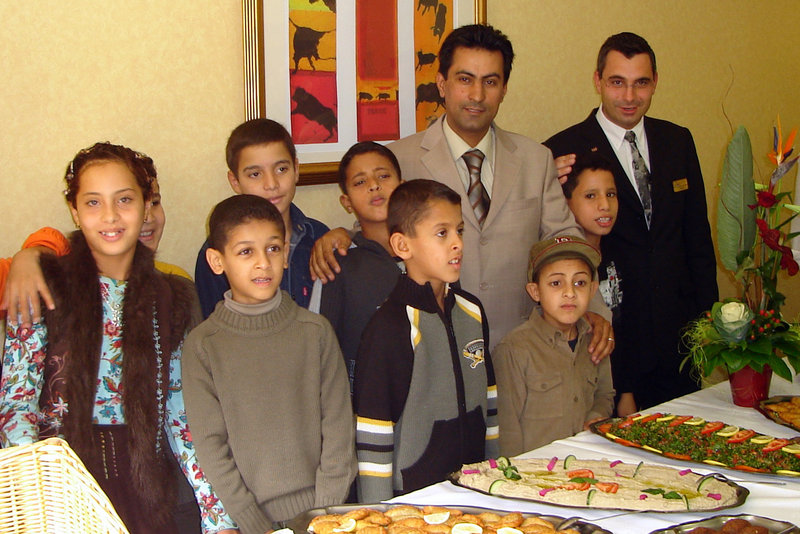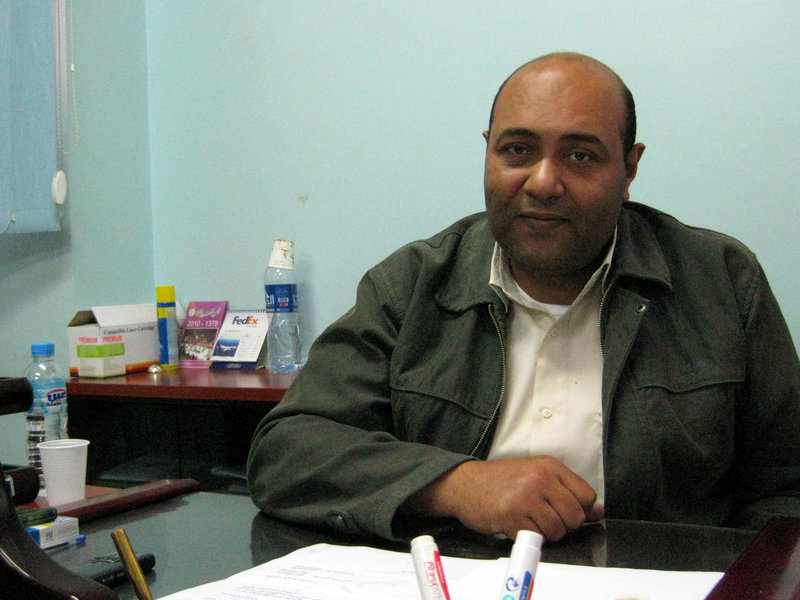BENGHAZI, Libya – For 13 years, a real-life medical drama has vexed this city, tracing the tortuous contours of Moammar Gadhafi’s long reign over Libya:
A public health crisis. A politically motivated witch hunt. Faulty science. Conspiracy theories. Prisoner abuse. Geopolitical gamesmanship. And, at its heart, more than 400 children who inexplicably found themselves infected with HIV.
Now, the revolt in eastern Libya has raised the tantalizing possibility that the truth in the case of the Benghazi Six will finally come out.
“There is something missing in this story, and if things change in Tripoli many secrets will open up,” said Ali Bin Jalil, a pediatrician who was working at Al Fateh Hospital in Benghazi in 1998, when it was hit with the biggest hospital-borne outbreak of HIV in history.
In the span of a few months, at least 426 patients in the children’s wards, some as young as 4 months, tested positive for the virus that causes AIDS. Seventeen mothers also became infected, most likely through breast-feeding. Sixty-two of the children have died.
Ignoring the findings of international experts — who determined that the virus was spread by poor hygiene at the hospital — a Libyan court convicted five Bulgarian nurses and a Palestinian intern who were working in the ward of deliberately injecting the children with HIV.
They were sentenced to death by firing squad and spent more than seven years in prison. Human rights groups accused Libyan authorities of beating the six prisoners with wires, administering electric shocks, forcing objects down their throats and unleashing dogs on them.
It was difficult not to see Gadhafi’s politics at work in the case. At the start, Libyan officials accused the medics of plotting with the CIA and Israel’s Mossad spy agency — two of Gadhafi’s favorite bogeymen — to infect the children. They later withdrew that, charging instead that the six were freelancers conducting medical experiments.
The case would become a key bargaining chip for Gadhafi, who by the 2000s was trying to patch up relations with the West. At one point, he offered to spare the nurses’ lives if Scottish authorities released Abdel Baset al-Megrahi, the Libyan former intelligence officer imprisoned for the 1988 Pan Am 103 bombing. In 2007, after lobbying from France and others, he agreed to extradite the six to Bulgaria.
Bulgaria’s president immediately commuted their sentences and set them free, deeply angering parents of the AIDS victims.
“It was shameful,” said Idriss Laga, 53, whose infant daughter was among those infected at the hospital. “That was all to support Saif’s political ambitions,” referring to Gadhafi’s son, Saif al-Islam.
Scientists have called the charges against the medics “garbage,” and so much time has passed that at least 12 of the children have had children of their own (all are HIV-negative).
But it’s a testament to the power of Gadhafi’s message machine — a 40-year program of simultaneously assailing the Western world and playing its victim — that nearly every Libyan connected with the case thinks the Benghazi Six are guilty.
Over the past two months, with a thoroughness that suggests a communal cleansing, Benghazi, the new opposition capital, has scrubbed itself of all reminders of Gadhafi’s rule. Osama Ali Eljhawi, the director of a special medical center in Benghazi that Gadhafi established for the AIDS patients, is one of the few who are starting to see the case in a new light.
“The nurses had no motive,” Eljhawi, a genial man who was a pediatrician in the hospital when the outbreak occurred, finally acknowledged near the end of an hour-long interview.
But he dismissed the allegations of hospital negligence, adding, “If the nurses didn’t inject them, someone else did.”
That explanation flies in the face of several high-powered inquiries, including one by the Nobel Prize-winning scientist who discovered HIV, Luc Montagnier.
In 2003, at the invitation of the Libyan government, he and the prominent Italian virologist Vittorio Colizzi examined blood samples and concluded that the infections in some of the children predated the nurses’ arrival at the hospital.
The strain of HIV matched a particularly virulent form prevalent in West and Central Africa, which was probably how it entered Benghazi, they said.
Noting severe shortages of drugs and medical supplies at the hospital, as well as a lack of understanding of a virus that had been exceedingly rare in Libya to that point, they argued that the hospital staff had most likely spread HIV by reusing needles and catheters.
“No evidence has been found for a deliberate injection of HIV-contaminated material,” the report concluded.
The Gadhafi regime promptly convened a Libyan panel that reached the opposite conclusion, which the court favored.
Colizzi, who traveled to Libya to conduct the inquiry and testified at the nurses’ trial, said the Benghazi doctors’ unwillingness to believe the research stemmed from simple fear: Admitting guilt would run afoul of a regime for which the case had become extremely valuable.
“If they had to say they were responsible, they could be put in jail. They could be killed by the Gadhafi system,” Colizzi said. “So there is some kind of alliance between the Gadhafi system and the Benghazi doctors for the same objective: for Gadhafi to play politics, for the doctors to escape responsibility.”
Underscoring the case’s importance to Gadhafi, doctors said that the regime had lavished the children’s families with $1 million each in compensation, established the AIDS center in Benghazi and waived bureaucratic restrictions so that they could purchase — with government money — name-brand anti-retroviral drugs directly from U.S. and European manufacturers.
“Other HIV cases in Libya are in a bad state. They have a shortage of drugs, even generic ones. … But if I wanted anything for the Benghazi cases I would just write a letter saying, ‘As you know, this issue is under the direct care of Moammar Gadhafi.’ It was the magic word,” Eljhawi said.
That special relationship appears to be over: When the anti-Gadhafi uprising began in mid-February, the supply of drugs from Tripoli abruptly stopped. Doctors are scrambling to replenish their stock before it runs out in two months.
It may take longer to establish the truth in this case.
Copy the Story Link
Send questions/comments to the editors.




Success. Please wait for the page to reload. If the page does not reload within 5 seconds, please refresh the page.
Enter your email and password to access comments.
Hi, to comment on stories you must . This profile is in addition to your subscription and website login.
Already have a commenting profile? .
Invalid username/password.
Please check your email to confirm and complete your registration.
Only subscribers are eligible to post comments. Please subscribe or login first for digital access. Here’s why.
Use the form below to reset your password. When you've submitted your account email, we will send an email with a reset code.